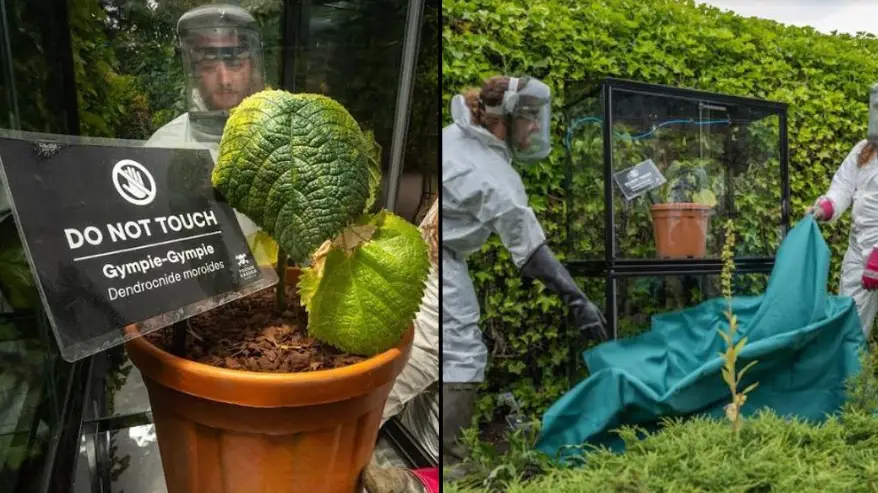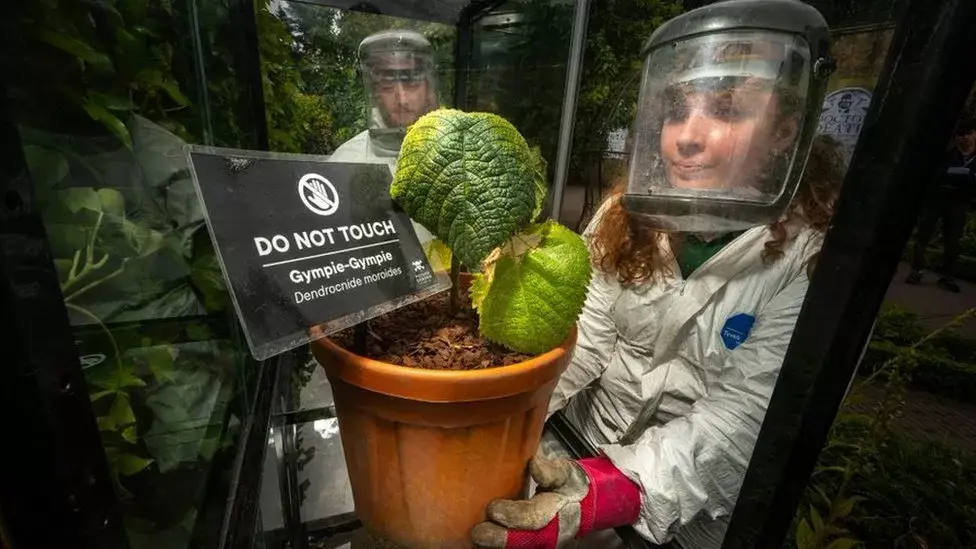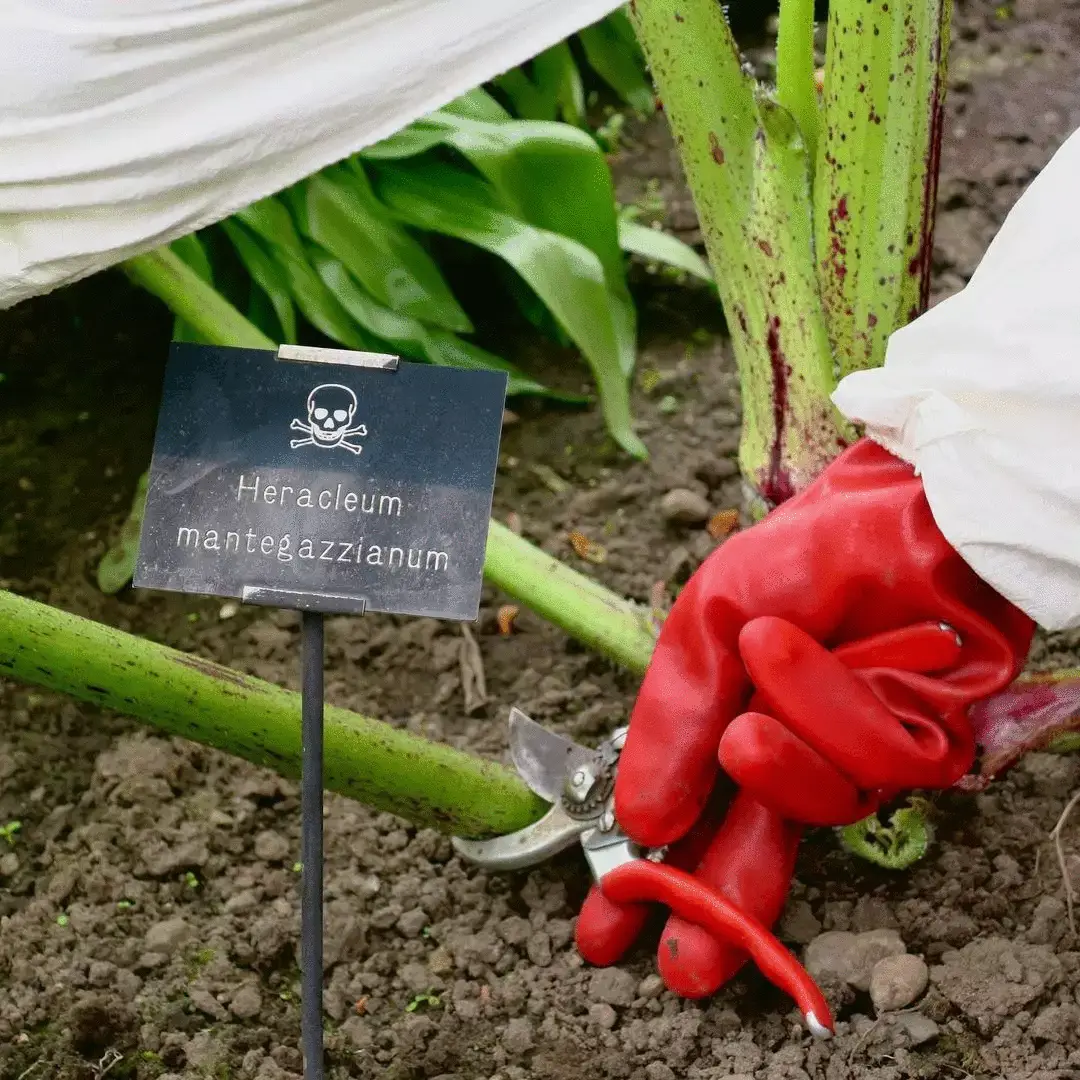
One of the world’s ‘most dangerous plants’ has arrived in the UK, with a sting so strong it’s been known to cause suicidal thoughts.
The Gympie-Gympie is so potent that it’s been likened to being ‘electrocuted’ and being on fire at the same time.
Whilst the painful plant is usually kept in botanical gardens, one adventurous Brit even decided to grow it in his own home.
However, we would not recommend this, and the venomous Gympie-Gympie has now found a new home at Alnwick Garden's Poison Garden – where it’s being kept under lock and key.
Advert
Usually found in Australia and Indonesia’s rainforests, the plant is part of the nettle family Urticaceae.
When it was first discovered in 1866, a road surveyor’s horse was reportedly stung with the animal going mad before dying ‘within two hours’.
According John Knox, lead tour guide at the Poison Garden, the plant’s tiny hair-like needles send a burning sensation through the victim, with the pain intensifying over the next 20 to 30 minutes before continuing for up to weeks or months.
This can happen even if you only brush against it for a second, with the expert likening the experience to ‘being electrocuted and set on fire at the same time’.

People have also reported being sent into experiencing huge red rashes, have their limbs swell up and have been left unable to sleep due to the unbearable pain.
There’s even been at least one report of suicide, with a man reportedly shooting himself after a painful run with the shrub.
But this hasn’t put off experts from welcoming the plant at Alnwick.
The Poison Garden in Alnwick, located in Northumberland, is home to around 100 ‘toxic, intoxicating and narcotic plants’, from deadly nightshade and hemlock to strychnine and giant hogweed.
Part of the larger Alnwick Garden is the creation of Jane Percy, the Duchess of Northumberland, who became a member of nobility when her husband’s brother suddenly died.
With the unexpected title came the magnificent Alnwick Castle – which many of you might recognise from the Harry Potter films – and its grounds, with Percy’s husband tasking her with bringing new life into the gardens.

Percy told Smithsonian Magazine, which refers to the garden as the ‘world’s deadliest': "I think he thought, 'That will keep her quiet, she’ll just plant a few roses and that’ll be it'.”
But Percy decided to ‘do something really different’, taking inspiration from a famous poison garden in Italy that belonged to the Medici family in Padua.
"I thought, 'This is a way to interest children'," she continued.
"Children don’t care that aspirin comes from a bark of a tree. What’s really interesting is to know how a plant kills you, and how the patient dies, and what you feel like before you die."
Percy added: “What’s extraordinary about the plants is that it’s the most common ones that people don’t know are killers.”
The garden’s website says visitors are not allowed to smell, touch or taste any of the plants inside, and that people still ‘occasionally faint from inhaling toxic fumes’ while walking around.
The boundaries are kept behind black iron gates that warn ‘THESE PLANTS WILL KILL YOU’, and also bear two skull and crossbones as an extra caution, with guests only allowed inside on guided tours.
Topics: UK News, Environment, Weird